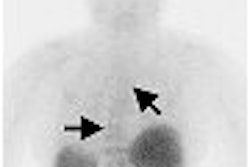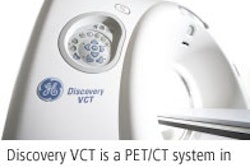Radiology advocates in the U.S. have become increasingly frustrated at their inability to get the federal government to restrict physician self-referral. Now there are signs that such efforts may bear more fruit at the state level, with the state of Massachusetts mulling a ban on the practice for MRI, PET, and linear accelerator services.
Lawmakers in Massachusetts are considering House Bill 2711, which would ban physicians and physician groups from referring patients to nonhospital-based healthcare facilities for MRI studies, PET scans, or linear accelerator treatment if the physician or group holds direct or indirect ownership or investment interest in the facility. The law has an exemption for radiologists or doctors employed by a hospital or hospital affiliate, and also includes a "grandfather" clause that exempts facilities that were providing the service in question on or before June 15, 2004.
The bill could particularly affect orthopedic physicians, who have been in the forefront of the self-referral trend by installing small, dedicated orthopedic MRI scanners in their offices.
Orthopedic surgeons defend physician self-referral as being more convenient for patients. Rather than requiring patients to endure long waits for MRI scans at a hospital or outpatient radiology center, individual physicians install the equipment in their offices, making it easy to order a scan when necessary. But many radiology advocates view the practice as a conflict of interest, one that allows orthopods to order scans from which they stand to gain financially.
In testimony delivered to the House Committee on Ways and Means last year, Dr. James Borgstede, chair of the American College of Radiology (ACR) of Reston, VA, described the astounding growth of in-office MRI utilization: Between 2000 and 2003, MRI exams per 1,000 Medicare beneficiaries by radiologists grew by 14% per year in number of procedures, and 13% per years in dollars; for nonradiologists, 25% per year in number of procedures and 28% per year in dollars. This kind of overutilization of MRI raises healthcare costs and degrades exam quality and safety, according to the ACR.
If passed, the Massachusetts bill will be enforced through the state's Department of Public Health. Initial violations of the legislation will result in a fine of $25,000. Continued violation would result in serious consequences, including fines not less than $25,000 and not more than $100,000 for each day of operation, as well as possible referral of the offending physician to the appropriate medical board for discipline and revocation of the facility's license.
The Massachusetts ban would be stricter than self-referral bans in other states that have such laws. Most states with laws banning physician self-referral do not address the in-office exemption issue, with the exception of a few states like Maryland, according to ACR spokesperson Shawn Farley.
However, a few state legislatures, including Connecticut and Rhode Island, have voted to require ACR accreditation of any physician who performs MRI imaging. Such laws are an effort to ensure quality of in-office MRI exams performed by nonradiologists, according to the ACR.
And a number of private third-party payors across the U.S. require ACR accreditation for MRI, including Aetna U.S. Healthcare, Auto Insurance Regulations of Florida, Blue Cross of California, HealthNow New York, Highmark Blue Cross of Pennsylvania, One Call Medical, Blue Cross/Blue Shield of Alabama, and New York Medical Imaging.
Massachusetts State Representative Paul Kujawski, author of HB2711, wrote the bill because he has seen first-hand the siphoning effect physician self-referral can have on hospital-based imaging. "There are two community hospitals in my district, and one is really struggling," Kujawski said. "Hospitals rely on the ability to perform diagnostic services for their community."
By Kate Madden Yee
AuntMinnie.com contributing writer
April 4, 2006
Related Reading
Government response to escalating imaging costs, December 12, 2005
Radiologists retain MRI turf, for now, December 1, 2005
Income level linked with use of diagnostic imaging, November 21, 2005
Massachusetts insurers seek to cut imaging utilization, September 12, 2005
In-office MRI spurs boom in MSK teleradiology, September 9, 2005
Copyright © 2006 AuntMinnie.com



















